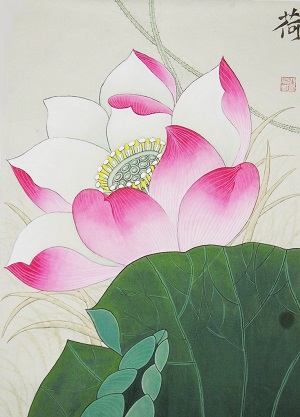5 Chengyu You Need to Know

Chengyu occupy a special position in the Chinese language. There are hundreds of these idioms sprinkled throughout classical and modern texts, but it can be difficult to get a real sense of how to use them. Even more so, when you are just starting to learn them it can be difficult to know which chengyu are truly useful as native Chinese speakers only use them on occasion. This list of 5 useful and common chengyu is not meant to be exhaustive or even the 5 most common. Just start with these and practice using them with your Chinese friends and colleagues. Learning these should give you a better understanding of how to use chengyu and set you up to decide which chengyu you want to learn next.
花容月貌 huā róng yuè mào
English: A flower that looks like the moon (used to describe a woman's beauty)
Example: 那娟娟小姐,~,自不必说;刺绣描花,也是等闲之事。
Nà juān juān xiǎojiě,~, zì bùbì shuō; cìxiù miáo huā, yěshì děngxián zhī shì.
不可思议 bù kě sī yì
English: inconceivable
Example: 一片澄澈的蔚蓝色的天宇,高深得~。
Yīpiàn chéngchè de wèilán sè de tiānyǔ, gāoshēn dé ~.
一窍不通 yī qiào bù tōng
English: to lack the slightest knowledge; to be out of one’s depth
Example: 虽然他是~的浑虫,可是双桥镇上并无“镇长”之流的官儿,他也还明白。
Suīrán tā shì ~de hún chóng, kěshì shuāng qiáo zhèn shàng bìng wú “zhèn zhǎng” zhī liú de guān er, tā yě hái míngbái.
自由自在 zì yóu zì zài
English: to be carefree, peaceful and relaxed
Example: 看那些交了卷出去的人真象~的仙人。
Kàn nàxiē jiāole juǎn chūqù de rén zhēnxiàng ~de xiānrén.
乱七八糟 luàn qī bā zāo
English: in a huge mess or to be in disarray
Example: 琴弹得~,可是她的嗓子怪清亮的。
Qín dàn de ~, kěshì tā de sǎngzi guài qīngliang de.
Interested in taking some classes to improve your spoken and/or written Chinese and learn even more chengyu? Have a look at our range of intensive and part-time classes or contact us directly to receive more information!
